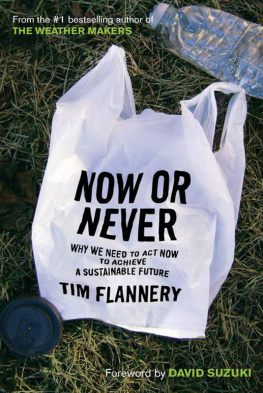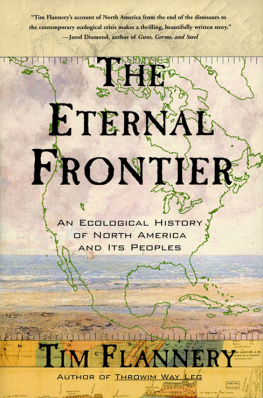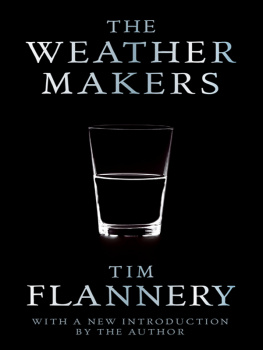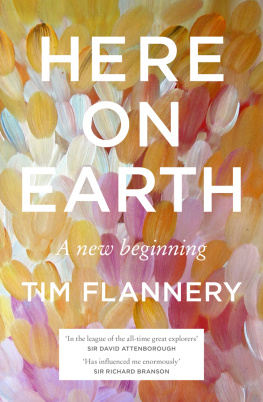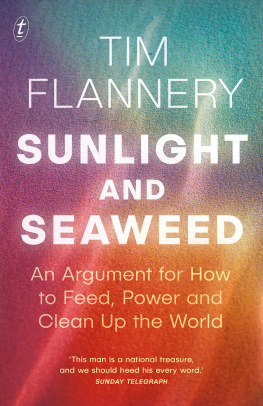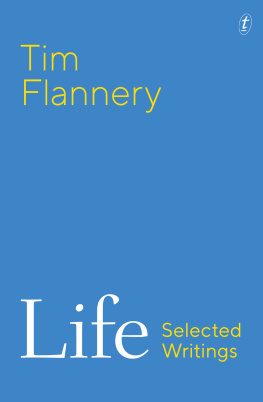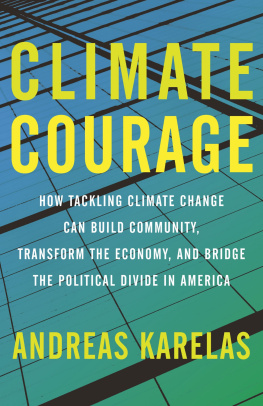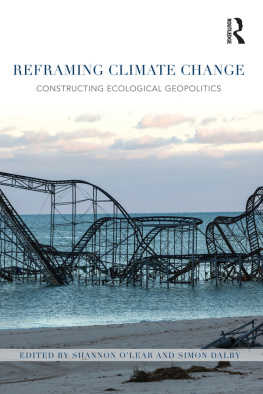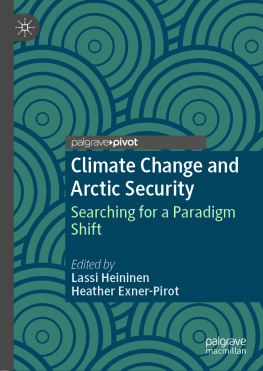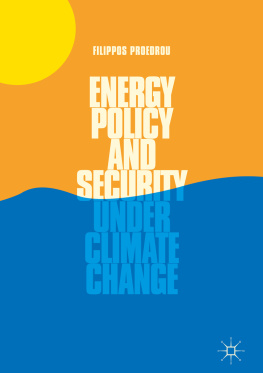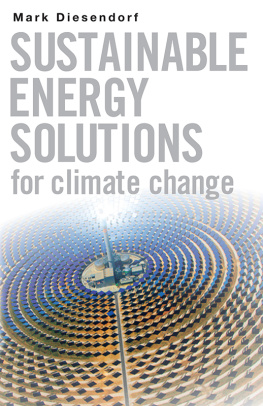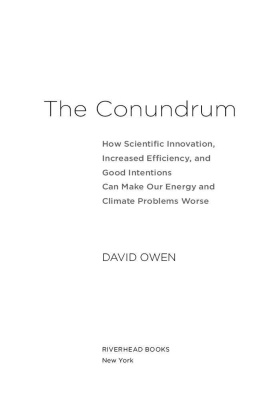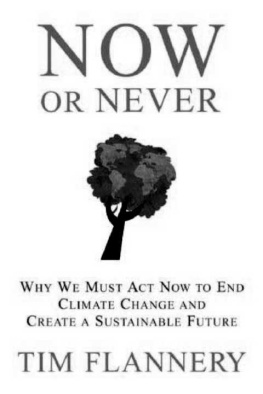FOREWORD
by David Suzuki
Human beings are an infant species, appearing in the last 0.001 percent of the time that life has existed on Earth. For most of the 150,000 years of our species existence, we were hunter-gatherers, carrying all our possessions in a constant search for food and materials. Even after the agricultural revolution ten millennia ago, we lived within limited confines in the company of a few dozen people. We have been local, tribal animals for almost all our time on Earth.
But suddenly we have become a geological force, altering the physical, chemical, and biological makeup of the planet as no other species has ever done. We have embraced the benefits of our newly acquired powers with little regard for the consequences within the biosphere. But now we have to ask, What is the collective impact of all 6.7 billion human beings?and it is very difficult to assess. Even when we do consider how we are all affecting our surroundings, we find there are no mechanisms to respond as a single species for our own benefit.
It has long been my contention that at the time of our emergence as a species on the plains of Africa, we gave no hint of our explosive development into a dominant force in only 150 millennia. Thats because our evolutionary advantage was hidden in our skulls. The human brain conferred an enormous memory, insatiable curiosity, and impressive creativity that more than compensated for our lack of physical and sensory capacities. Accumulating knowledge through experience and imagination, we invented the notion of a future; and in so doing, we found we could influence that future. Using our knowledge and memory, we could look ahead, anticipate dangers and opportunities, and thus deliberately choose to take actions that avoided the dangers and exploited the opportunities. Foresight was our great advantage and was a key part of our enormous success as we spread across the planet.
Today, we are the most numerous mammal on Earth, and our huge ecological footprint (that is, the amount of land and water needed to meet our demands) has been amplified beyond that of any other species by our technological muscle power, voracious appetite, and global economy. It has only been forty-seven years since Rachel Carson told of the costs of our technological prowess in her influential book Silent Spring. Despite her prescient warnings, pesticides are used today in far greater amounts and many are far more toxic than those used in 1962.
Our capacity to look ahead has been greatly amplified today, with scientists, supercomputers, and telecommunications; and ever since Silent Spring, the warnings of scientists have become more urgent. But now we are turning our backs on the very way that so successfully got us to our current position of dominance.
In 1988, the environment was the number one concern of people around the world. That year, Prime Minister Margaret Thatcher of the United Kingdom declared, Im a greenie, and George H. W. Bush promised, if elected, to be an environmental president. In 1988, Brian Mulroney was reelected prime minister in Canada and, to show he cared about the environment, he appointed his brightest star, Lucien Bouchard, as minister of the environment. I interviewed Bouchard three months later and asked what he felt was the most urgent environmental issue for Canadians. His instant response was, Global warming. When I asked how serious it was, he replied, It threatens the survival of our species. We have to act now.
That year, 300 scientists met in Toronto to discuss the atmosphere. They were convinced there was evidence that global warming was occurring and that people were causing it. In a press release, they declared that global warming represented a threat to human survival second only to nuclear war, and they called for a 20 percent reduction in greenhouse gas emissions below 1988 levels in fifteen years. Scientists had spoken, the public was concerned, and politicians had gotten the message. Had we acted accordingly, we would be far beyond the Kyoto target and well on our way to the deep reductions we now know we have to make.
But we didnt respond by taking on the challenge. Politicians didnt have the stomach to take the criticism for spending big bucks to reduce greenhouse gas emissions when they wouldnt even be around to take credit for it fifteen years later. Many environmentalists, including me, felt it was a slow-motion catastrophe and there was time to focus on more urgent issues like clear-cut logging. But most egregiously, corporations began to spend millions on a campaign to confuse the public, calling climate change junk science, supporting articles and Web sites to dispute the evidence, and funding a few skeptics to spread disinformation. And it worked. (See Climate Cover-Up by James Hoggan.)
Tim Flannerys The Weather Makers was a wake-up call. A best-selling book, it made the impact of climate change real and personal and, like Al Gores An Inconvenient Truth, moved a wide audience to take the issue seriously. But as countries moved with glacial reluctance to make big reductions in their greenhouse gas emissions, glaciers themselves were melting with unprecedented speed. The most authoritative voice on climate, the Intergovernmental Panel on Climate Change, has issued updates that have become more and more urgent, even as scientists announce unanticipated rapidity of change.
Flannerys latest message, Now or Never, is that we have passed the tipping point for climate change and are approaching a point of no return where we will not be able to do anything about it except hang on for the final ride through very turbulent times. For too long, we have pulled our punches to avoid being dismissed as sensationalists, alarmists, or extremists, even when the science warranted extreme statements. We have urged individual actions like changing lightbulbs and turning off computers while economies, energy use, and emissions continued to rise.
The scientific foresight that enables us to look ahead now demands that we take the gloves off and tell it like it is. We are heading toward a precipice at breakneck speed and we have to slow down and, very soon, turn onto a different road. If we fail to act with the urgency Flannery demands, then our foresight poses a terrifying fate.
Can we make the kinds of major shifts that Flannery suggests climate change demands? Of course. If we dont, we will be left in a far more precarious state, as changes that we cant even anticipate assault us. When Japan attacked Pearl Harbor on December 7, 1941, the American Pacific fleet was severely damaged. Americans didnt roll over and seek peace or decry the cost of all-out war. Americans had no choicethey had to make every effort to win. Thats one way: to let matters develop and deal with the consequences when they crop up. The scale of response should mimic a war effortbut theres a better way.
I was beginning my last year in college in 1957 when the world was electrified by the announcement, on October 4, that the Soviet Union had launched Sputnik, a basketball-size satellite, into orbit. In the ensuing months, U.S. Army, Air Force, and Navy rockets all blew up on the launch pad as the Soviets announced the first animal in spacethe dog Laika. Then Yuri Gagarin became the first man in space, a team of cosmonauts was launched, and Valentina Tereshkova was the first woman cosmonaut. It was a frightening time as the Russians advantage in science and engineering confronted the Americans failures.
Americans didnt give up because the Soviet Union was too far ahead or because the cost of competing would ruin the American economy. Instead, the United States began to spend billions on research, universities, and students. It was a glorious timeI was then a foreign student in the United Statesand there were grants and jobs widely available. When John F. Kennedy announced the plan to land Americans on the moon, the public rejoiced at the challenge. And once it had beaten the world to the moon, the United States reaped completely unexpected benefits from its investmentcell phones, round-the-clock television news, and GPS. In 2007, half a century later, every Nobel Prize in science went to an American laball because in 1957, Americans decided to make an all-out effort to confront the Soviet juggernaut. Thats been the American way, and that is what is needed now to confront the most serious of all challengesclimate change.

